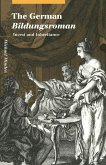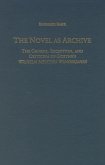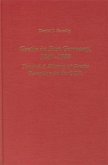The German Pícaro and Modernity reads the re-emergence of the picaresque narrative in twentieth-century German-language writing as an expression of modernity and its social imaginaries. Malkmus argues that the picaresque, whose origins date back to the Spanish Renaissance and the Baroque Age, re-emerged as a reflection both of Germany's explosive modernizing processes between 1880 and 1930 and of the most barbarous implosion of modern civilization under National Socialism. Another reason for the fertility of this literary form at that particular cultural moment is rooted in the complexities of German-Jewish relations and the history of Jewish assimilation in central Europe. A considerable number of authors who used the picaresque form in the twentieth century are from a Jewish background, and Malkmus demonstrates how the picaresque narrative template also offers a medium for German-Jewish self-reflection. In highlighting these connections, he contributes not only to scholarship in European literature, but also but also to our understanding of major social, economic and political issues at stake in modernity
Hinweis: Dieser Artikel kann nur an eine deutsche Lieferadresse ausgeliefert werden.
Hinweis: Dieser Artikel kann nur an eine deutsche Lieferadresse ausgeliefert werden.
"In this bold and intelligent new volume, Bernhard Malkmus uses the pícaro figure to explore fundamental questions of the constitution of the subject in modernity. The book presents a set of original and searching new readings of texts, both canonical and less familiar, with considerable implications for the understanding of the conditions of modern culture, especially-but not only-in their German form." -- Andrew J. Webber, Professor of Modern German and Comparative Culture, Head of the Department of German and Dutch, University of Cambridge, UK







